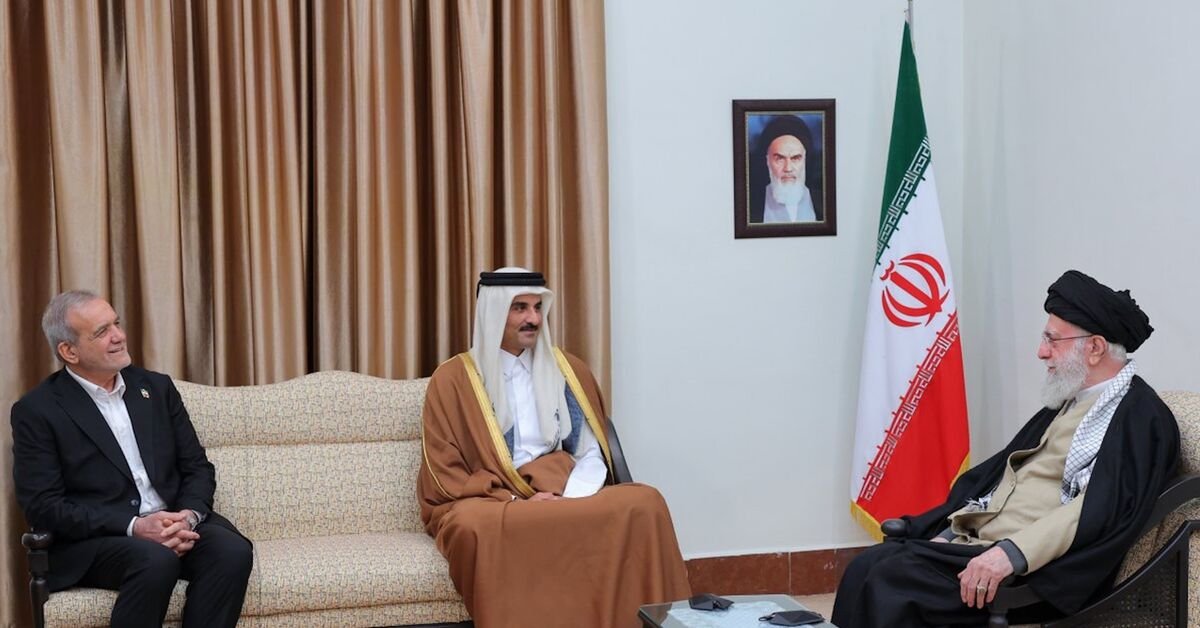Iranian Supreme Leader Ayatollah Ali Khamenei has asked the Qatari emir, Sheikh Tamim bin Hamad Al Thani, to release $6 billion in Iranian oil revenues held in Doha, despite US pressure not to do so.
“We consider Qatar a friendly and brotherly country, although there are still ambiguous and unresolved issues,” Khamenei said on Wednesday, during a meeting with Sheikh Tamim in Tehran. The state-run Islamic Republic News Agency reported Khamenei’s remarks, which he later posted on his official X account. The emir, on an official visit, was accompanied by Sheikh Mohammed bin Abdulrahman bin Jassim Al Thani, Qatar’s prime minister and minister of foreign affairs.
Khamenei was referring to some $6 billion in payments made by South Korea for Iranian oil that were frozen in Seoul bank accounts in 2019, after the first Trump administration imposed additional sanctions on Iran. The funds were transferred to a Qatari bank in September 2023 as part of a prisoner-swap deal between Tehran and Washington.
The agreement to move the money to Qatar only allowed Iran to access it for strictly humanitarian purposes, with strict US oversight. Less than a week after Hamas launched its Oct. 7 attack on Israel, however, the United States and Qatar agreed to block Iran from accessing the funds, citing Tehran’s financial backing of the Palestinian group, which the United States along with the European Union and several countries have designated a terrorist organization.
“If we were in Qatar’s place, we wouldn’t pay attention to the pressures brought by the US and would return Iran’s assets,” Khamenei said on X. “We continue to expect Qatar to do this.”
Khamenei pointed to Trump’s return to the White House as the main obstacle preventing the Qatari government from releasing the funds.
While in Tehran, Sheikh Tamim also met with Iranian President Masoud Pezeshkian on Wednesday. According to IRNA, Pezeshkian expressed gratitude to Qatar for its role in mediating the ceasefire in Gaza after 15 months of war. The two leaders also discussed the future of Syria and ways to expand economic ties.
Pezeshkian noted that he had previously raised the issue of the frozen funds with Sheikh Tamim, during an Oct. 4 summit in Doha, and that the two countries’ central banks had held discussions about it.
“We reached a good understanding in this regard,” Pezeshkian said at the time.
The United States retains strict oversight over the funds, however, and the power to freeze them.
